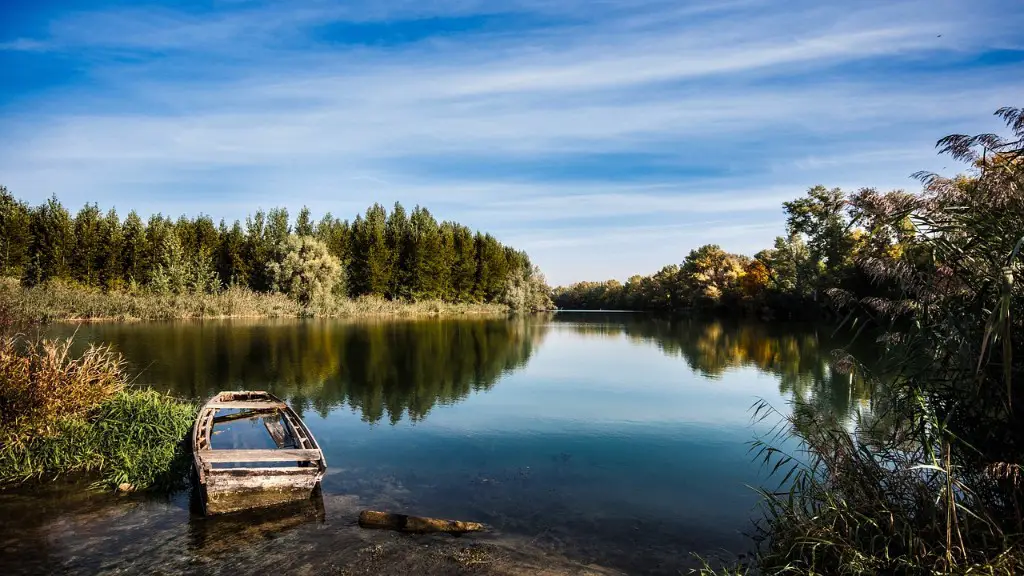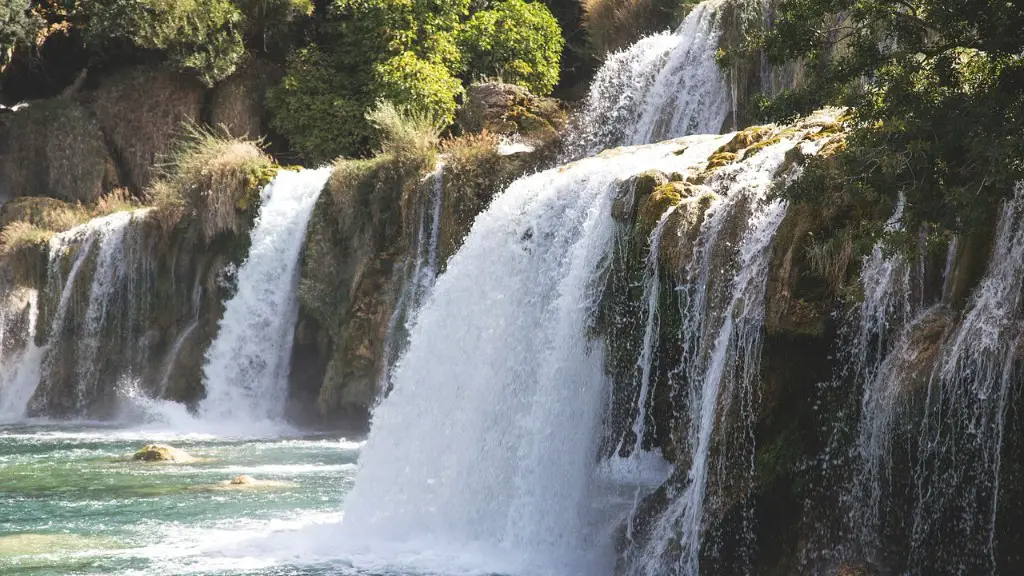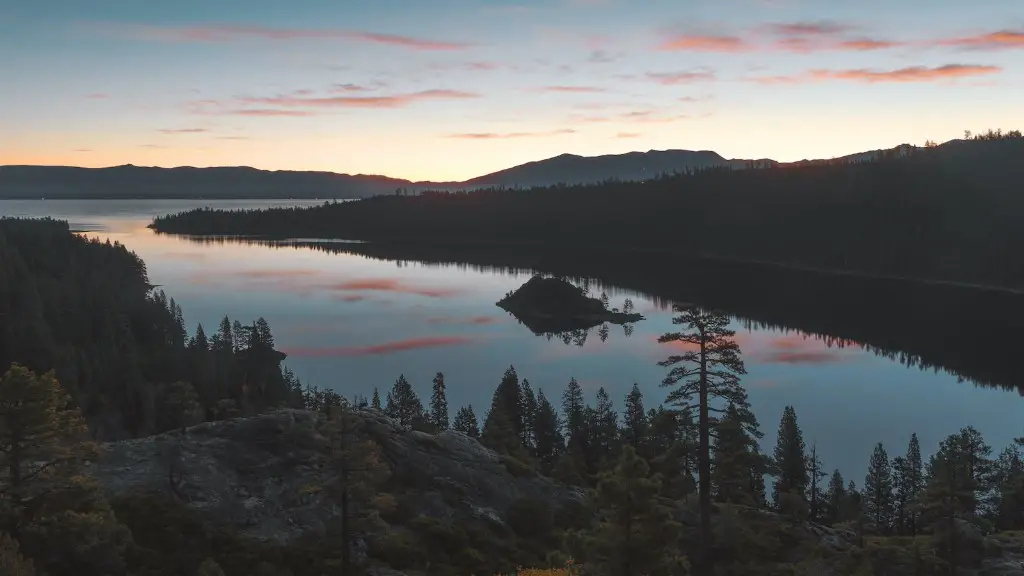The Nile River is one of the longest rivers in the world, stretching over 4,000 miles. It has been a major source of sustenance and civilization for the people of Egypt for thousands of years. The reasons behind this are numerous and varied, but it is clear that the river’s significance extends beyond its physical characteristics. From providing food and transport resources to economic stability, the Nile is essential for many aspects of life in Egypt, both ancient and modern.
First and foremost, the Nile is a source of food for the Egyptian people. Its banks are teeming with fish and other aquatic life, offering a ready supply of nutrition for the population. In addition, the Nile also provides an abundance of silt, known as “black gold” in this part of the world. This nutrient-rich sediment is deposited along the river, and is used to fertilize fields and provide sustenance for the plants and animals that inhabit the food chain.
The Nile is also the main vehicle of transportation in Egypt. Boats of all sizes traverse the calm waters of the river, bringing goods and passengers between cities and villages. Furthermore, the Nile is a primary source of power, with river-driven turbines producing electricity for homes and businesses. The river also creates numerous irrigation networks, providing water to crops and ensuring adequate yields.
Moreover, the Nile River provides a means of economic stability for the country. As a major trade route, it has historically been used to carry goods and materials between civilizations, resulting in an influx of wealth into the region. This in turn has allowed the Egyptians to construct elaborate monuments, such as the pyramids at Giza, and build grand cities like Cairo. The river has also become an important destination for tourists, attracting millions of visitors each year and providing an important source of income for the people.
Finally, the Nile is a major source of spiritual and cultural significance for the Egyptians. It is believed to have been the birthplace of their ancient gods, and its waters are used in religious ceremonies and rituals. It is also linked to mythology, with stories concerning its creation and power told in stories and songs. These beliefs give the river a unique status within Egyptian culture, one that is still present in the modern world.
History of the Nile
The Nile has been an integral part of Egyptian life for thousands of years. Its first inhabitants called it “Hapy”, in honor of the god of the river. For centuries, the river served as an important source of sustenance for the people, providing them with food, transportation, and water for irrigation. The construction of irrigation networks, such as the Shadoof system, allowed the civilization to unlock even more of the river’s potential.
The rise of a centralized monarchy during the Old Kingdom period marks the beginning of the river’s true importance. Under the rule of the pharaohs, the Nile was used to build monumental royal structures and create elaborate urban centers, while helping to maintain an ideological structure of state power. In addition, several religious and cultural practices emerged, with the river as a primary source of spiritual and social significance.
In the following centuries, the river played a major role in Egypt’s fortunes. After the country’s defeat in the Battle of Actium, it became part of the Roman Empire, which saw the river as a key economic and political asset. In 1250 BC, the Nile was the stage for the Battle of Kadesh, which resulted in a decisive victory for Egypt. During the subsequent Middle Kingdom, the kingdom saw a resurgence in wealth and prosperity, with the river playing a pivotal role in this growth.
Even after Egypt’s annexation by the Roman Empire in 30 BC, the Nile continued to be essential to the country’s growth and stability. Throughout the medieval period, the river served as a major transportation route and remained the primary source of sustenance for the people, who maintained their spiritual and cultural ties to the mighty river.
Environmental Impact of the Nile
The importance of the Nile to Egypt’s development is undeniable. Unfortunately, this reliance on the river has come with a cost. Concentrated development along the banks of the river has driven up pollution levels, with chemical runoff from factories and agricultural operations further degrading the waters. This, along with the disruption of natural ecosystems, has had a severe impact on the river’s ability to provide sustenance for the population.
In addition, the Nile also faces a variety of challenges due to climate change. Water levels have dropped due to warming temperatures and increased evaporation. This, in turn, has caused water shortages, particularly during drought periods when the river is unable to provide the same amount of sustenance. Moreover, rising sea levels have further impacted the river’s ability to provide adequate resources, with some of the most fertile lands now submerged.
In order to address these threats, the Egyptian government has implemented several measures, including stricter regulations on industrial and agricultural runoff, more stringent conservation practices, and tighter enforcement of fishing quotas. These efforts have helped to reduce pollution levels and protect the natural environment, but more needs to be done to ensure the river’s long-term sustainability.
In recent years, there have been a number of initiatives focused on restoring the ecological balance of the Nile. The Egyptian government has invested heavily in research, development, and infrastructure projects, including the Aswan High Dam. The implementation of new technologies, such as drip irrigation and water recycling systems, has also helped to reduce water usage and increase the efficiency of river resources.
Political Significance of the Nile
In addition to its environmental, economic, and cultural significance, the Nile is also an important political force in the region. Its waters have been the subject of conflict between countries such as Sudan and Ethiopia, as each seeks to ensure adequate access to the river’s resources. This has even led to the formation of international treaties, designed to protect the interests of all involved Parties.
Furthermore, the Nile has served as a source of diplomatic bridges between rival nations. In recent years, the presidents of Egypt, Sudan, and Ethiopia have engaged in a series of negotiations regarding the use and regulation of the river. The result of these talks was the signing of the “Declaration of Principles” in 2015, a landmark agreement that sought to create a pathway for cooperation and development.
The impact of the Nile extends beyond political borders, however. There are numerous examples of how the river has been used as a tool for international solidarity. Following the Arab Spring uprisings of 2011, for example, the river was a key site for public gatherings and protests, with demonstrators calling for greater freedoms and rights.
Such is the importance of the Nile that it can often be seen as a symbol of unity, standing as a bridge between cultures, countries, and ideologies. Its significance to Egyptian civilization is undiminished, its waters still providing sustenance and resources to the people.
Conclusion
It is clear that the Nile River has played an essential role in the history and development of Egypt. It has been a reliable source of food and transportation, a powerful economic force, and an integral part of the spiritual and cultural heritage of the nation. Although its waters have been tainted by pollution and mismanagement, the river remains a vital source of sustenance for the people of Egypt. As the country continues on its path towards progress and prosperity, the Nile River will remain an integral part of the nation’s future.




